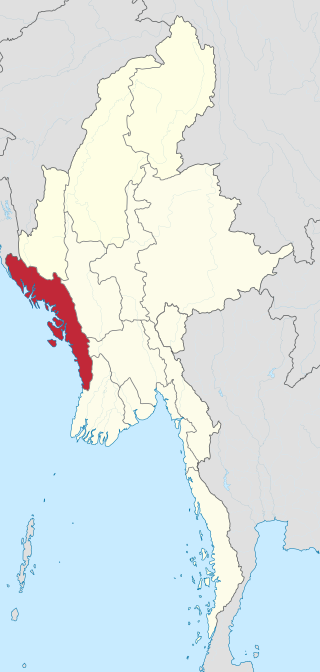
Rakhine State,formerly known as Arakan State,is a state in Myanmar (Burma). Situated on the western coast,it is bordered by Chin State to the north,Magway Region,Bago Region and Ayeyarwady Region to the east,the Bay of Bengal to the west and the Chittagong Division of Bangladesh to the northwest. It is located approximately between latitudes 17°30' north and 21°30' north and longitudes 92°10' east and 94°50' east. The Arakan Mountains or Rakhine Yoma separated Rakhine State from central Burma from North to South. Off the coast of Rakhine State there are some fairly large islands such as Ramree,Cheduba and Myingun. Rakhine State has an area of 36,762 square kilometres (14,194 sq mi) and its capital is Sittwe.

The Rohingya people are a stateless ethnic group who predominantly follow Islam and reside in Rakhine State,Myanmar. Before the Rohingya genocide in 2017,when over 740,000 fled to Bangladesh,an estimated 1.4 million Rohingya lived in Myanmar. Described by journalists and news outlets as one of the most persecuted minorities in the world,the Rohingya are denied citizenship under the 1982 Myanmar nationality law. There are also restrictions on their freedom of movement,access to state education and civil service jobs. The legal conditions faced by the Rohingya in Myanmar have been compared to apartheid by some academics,analysts and political figures,including Nobel laureate Bishop Desmond Tutu,a South African anti-apartheid activist. The most recent mass displacement of Rohingya in 2017 led the International Criminal Court to investigate crimes against humanity,and the International Court of Justice to investigate genocide.

Maungdaw is a town in Rakhine State,in the western part of Myanmar (Burma). It is the administrative seat of Maungdaw Township and Maungdaw District. Bordering Bangladesh,Maungdaw is home to one of 2 official border trade posts with Bangladesh.
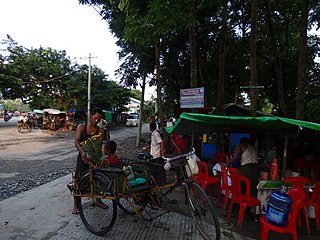
Buthidaung is a town in Rakhine State,in the westernmost part of Myanmar (Burma). It is the administrative seat of the Buthidaung Township. Buthidaung lies on the west bank of the Mayu river,and experienced severe flooding in June 2010 and July 2011. Buthidaung is 16 miles east from Maungdaw. The two towns are connected by two tunnels through the Mayu mountains that were built in 1918.

Maungdaw Township is a township of Maungdaw District in Rakhine State,Myanmar (Burma). The principal town is Maungdaw.

Buthidaung Township is a township of Maungdaw District in the Rakhine State of Myanmar (Burma). The principal town and administrative seat is Buthidaung.

The Rohingya conflict is an ongoing conflict in the northern part of Rakhine State,Myanmar,characterised by sectarian violence between the Rohingya Muslim and Rakhine Buddhist communities,a military crackdown on Rohingya civilians by Myanmar's security forces,and militant attacks by Rohingya insurgents in Buthidaung,Maungdaw,and Rathedaung Townships,which border Bangladesh.
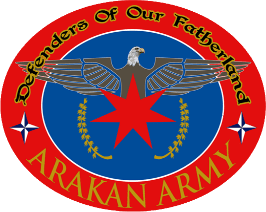
The Arakan Army,sometimes referred to as the Arakha Army,is an ethno-nationalist armed organisation based in Rakhine State (Arakan). Founded in April 2009,the AA is the military wing of the United League of Arakan (ULA). It is currently led by Commander-in-Chief Major General Twan Mrat Naing and vice deputy commander-in-chief Brigadier General Nyo Twan Awng. It is the military wing of the Rakhine ethnic people in Rakhine state where they are the majority. They seek greater autonomy from the Myanmar's central government and wants to restore the sovereignty of Arakan people. It was declared a terrorist organization in 2020 by Myanmar,and again by the State Administration Council junta in 2024.
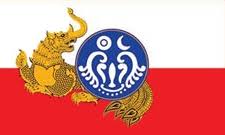
The Arakan National Party,is a political party in Myanmar (Burma),representing the interests of the Rakhine people in Rakhine State and Yangon Region. The party was founded on 13 January 2014 and registered with the Union Election Commission on 6 March 2014. The chairman of the ANP is Thar Htun Hla. The party is known for its hardline ethnic nationalist stance,as well as its Islamophobic and anti-Rohingya positions. Some members of the party were involved in instigating violence against Rohingya people during the communal riots in 2012,which left dozens dead and thousands homeless.

The Rohingya Solidarity Organisation (RSO) is a Rohingya insurgent group and political organisation. It was founded in 1982 following a large scale military operation conducted by the Tatmadaw. The group discontinued its armed rebellion in 1998 but rearmed shortly after the 2021 Myanmar coup d'etat.

The Arakan Rohingya Salvation Army (ARSA),formerly known as Harakah al-Yaqin,is a Rohingya insurgent group active in northern Rakhine State,Myanmar. According to a December 2016 report by the International Crisis Group,it is led by Ataullah abu Ammar Jununi,a Rohingya man who was born in Karachi,Pakistan,and grew up in Mecca,Saudi Arabia. Other members of its leadership include a committee of Rohingya émigrés in Saudi Arabia.

Violent clashes have been ongoing in the northern part of Myanmar's Rakhine State since October 2016. Insurgent attacks by the Arakan Rohingya Salvation Army (ARSA) have led to sectarian violence perpetrated by Myanmar's military and the local Buddhist population against predominantly Muslim Rohingya civilians. The conflict has sparked international outcry and was described as an ethnic cleansing by the United Nations High Commissioner for Human Rights. In August 2017,the situation worsened and hundreds of thousands of refugees fled Myanmar into Bangladesh,with an estimated 500,000 refugees having arrived by 27 September 2017. In January 2019,Arakan Army insurgents raided border police posts in Buthidaung Township,joining the conflict and beginning their military campaign in northern Rakhine State against the Burmese military.
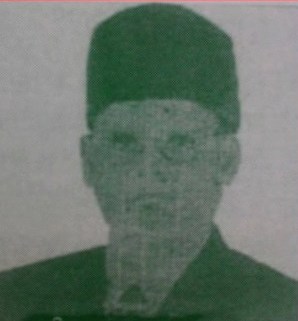
Mohammed Abdul Gaffar (1910–1966),also known as Abdul Gaffar,was a politician from Arakan,Burma. He was elected to the Legislature of Burma in British Burma from Buthidaung in 1947. After Burmese independence in 1948,the President of Burma Sao Shwe Thaik appointed Gaffar as one of the seven members of the Inquiry Commission of Arakan in 1949. Gaffar was elected to the Chamber of Nationalities from Akyab West constituency in 1952. He was elected from Maungdaw in 1956. He also served as Parliamentary Secretary for the Ministry of Health in the government of Prime Minister U Nu.
Sultan Mahmud (1900–1982) was a politician from Arakan,Burma. In the British Raj,Mahmud served as cabinet secretary in the Central Legislative Assembly. After Burmese independence,he was elected to the Parliament of Burma through a by election from Buthidaung in 1957. He was re-elected in 1960. He served as Minister of Health of the Union of Burma from 1960 till the 1962 Burmese coup d'état.
Sultan Ahmed was one of the longest serving legislators from Arakan,Burma. Ahmed was the president of the Jamiat-e-Ulema party,which was allied with the Anti-Fascist People's Freedom League,the founding political party of Burma. Ahmed served in the Burmese parliament until the 1962 Burmese coup d'état.
Daw Aye Nyunt,also known by her Islamic name Zura Begum,was a Burmese politician from Akyab,Arakan,now Sittwe,Rakhine State. She was one of two women elected to the Union Parliament in the country's first post-independence election in 1951. An ethnic Rohingya,she was the first woman member of parliament (MP) from Arakan and represented the constituency of Maungdaw South from 1951 to 1956. Her father U Po Khine and husband Sultan Ahmed also served as MPs in the Union Parliament,representing Akyab North and Maungdaw North,respectively.
Fazal Ahmed is a Rohingya lawyer and former politician in Myanmar. He was a leader of the National Democratic Party for Human Rights (NDPHR). He was elected as Parliament of Myanmar MP during the 1990 Burmese general election.

The Bangladesh–Myanmar border is the international border between the countries of Bangladesh and Myanmar. The border stretches 271.0 kilometres,from the tripoint with India in the north to the Bay of Bengal in the south. About 210 km (130 mi) of the border is fenced,with the government of Myanmar announcing in 2017 that it was planning to fence off the rest of the border.

The Mayu Frontier District was an administrative division of Burma that existed between 1961 and 1964. It covered the Maungdaw District of present-day Rakhine State in the historical region of Arakan. The zone was administered directly from the capital Rangoon.

The Border Guard Police are a department of Myanmar's Myanmar Police Force,specialising in border control,counterinsurgency,crowd control and security checkpoints in border areas and insurgent areas,gathering intelligence in local areas to counterinsurgency and counter perpetrators in border areas,internal security,law enforcement in border areas and insurgency areas,and protecting agency assets in risky areas. The BGP operate in northern Rakhine State and are especially active along the Bangladesh–Myanmar border,due to the ongoing exodus of Rohingya people fleeing sectarian violence in Myanmar. In addition to border security,the BGP are also responsible for manning checkpoints and documenting the movement of Rohingyas within Rakhine State.















